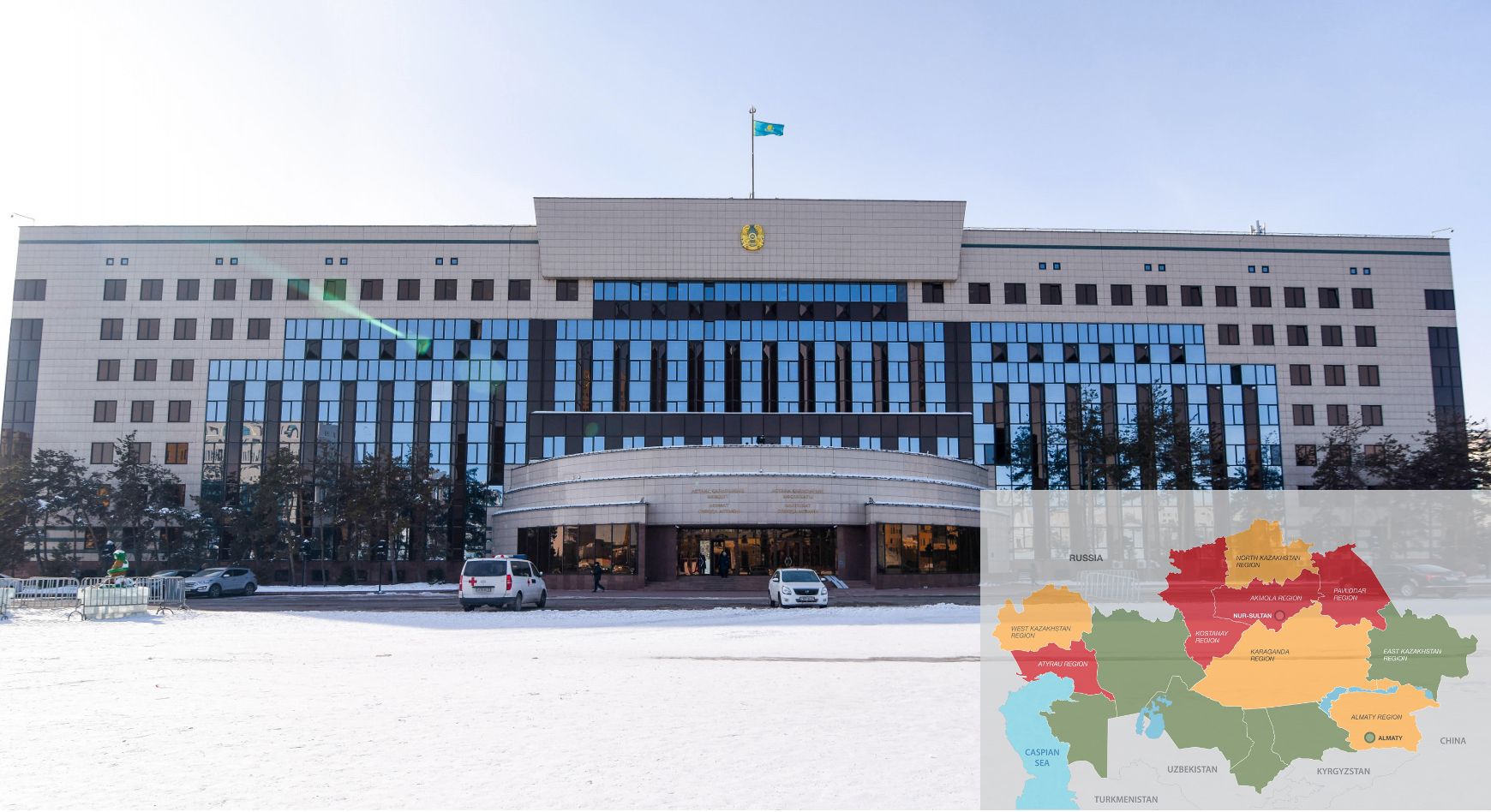NUR-SULTAN – Kazakhstan is witnessing a surge in coronavirus cases and to address the spike, the nation saw another tightening of COVID-19 restrictions. Starting Jan. 18, the Kazakh capital Nur-Sultan restricted operating hours for cafes, and restaurants, according to a new decree of the city’s chief doctor Sarkhat Beisenova.
With the new rules in place, dining places in Nur-Sultan will be working from 7 a.m. until 8 a.m. Before that, they were allowed to work until midnight.
To limit COVID-19 exposure, the capital chief sanitary doctor also closed trade malls and restricted their working hours on weekdays from 10 a.m. until 10 p.m.
Capacity in trade malls should not exceed 30 percent, said the updated decree.
Gyms will also be closed for weekends, and their working hours on weekdays will be from 7 a.m. until 10 p.m.
Mass gatherings remain prohibited, and officials warned that citizens violating the rule will face a fine.
The epiphany bathing, usually held on the night between Jan. 19 and Jan. 20, was also cancelled to prevent crowds.
According to the assessment of the epidemiological situation published by the Kazakh Ministry of Healthcare on Jan. 18, Nur-Sultan has entered a high risk red zone, along with the Akmola, Atyrau, Kostanai and Pavlodar regions.
The Almaty, Karaganda, West Kazakhstan and North Kazakhstan regions are in the moderate risk yellow zone.
Over the past day, Kazakhstan registered 1,003 new coronavirus cases, including 125 in the capital.
“First of all, this is due to an increase in the number of tests conducted daily. If previously, there were 2,000 to 2,500 tests a day, now there are up to 4,500 tests a day. There is also an incubation period after the New Year holidays. This means that there were people who neglected sanitary norms,” said capital chief doctor Sarkhat Beisenova.
She said the task is now to “flat the curve and curb the spread.”
“Quarantine restrictions help us in doing so. (…) This (new restrictions) will help stop the spread of coronavirus in different districts of the city,” she said.
She urged citizens to remain vigilant and practice social distancing, frequent hand washing and to wear masks.


